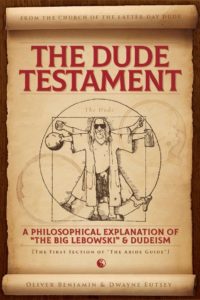- Don’t say “hero,” ’cause what’s a hero?
There once was a time in cinema where the good guys wore white and the bad guys wore black, and their moral behavior was just as Old Testament as their hats. But of course, that got old fast. These days our grey matter is far more interested in the grey areas. In response to this didactic haberdashery, movies soon enjoyed the rise of the “antihero”—that is, someone who may not be 100 percent morally upstanding, but whom we nevertheless sympathize with, because we ourselves are morally closer to Silver than to the Lone Ranger.
In the mid-20th century, perhaps as a response to three major wars and the horror they produced, along with the dark side of a growing urbanization, the dystopian film noir genre took hold. Film noir was characterized by a strong male lead who was somewhat of an antisocial creep, yet who proved to be morally head and shoulders above those around him. Nowadays, these so-called antiheroes are everywhere in Hollywood. They’ve Bogarted the joint, in the parlance of our times.
Yet, these characters are antiheroes in affect only. Though noir heroes’ clothing may tend to be black in color, they’re still purveying a strict interpretation of white-hat cowboy morality—namely, it is the hero’s job to go out into the world and do his best to “do the right thing, no matter what the cost.”
Conversely, the Dude (whose clothing tellingly tends toward earth tones) may be the only real antihero in the history of film. Why? Because he is so utterly, unapologetically unheroic. Whereas most heroes are marked by complacency at the beginning, they are ultimately called into action by a stark necessity. The Dude is the exact opposite: Though we learn that he was an activist for civil liberties in his youth, he has done virtually nothing in the intervening decades. “My career’s slowed down a little lately,” he notes, without a trace of wistfulness. Whenever the “call to action” came in his life, the Dude let his answering machine take a message. The Big Lebowski chronicles perhaps the only thing he has actually “done” since his student days. Only, it’s not even his choice. Others basically Shanghai him into action.
Perhaps we’re meant to laugh at him at first; but given what we are forced to consider later in the film regarding the so-called heroism of military and business titans, it appears that the Dude’s laid-back, utterly passive-ist approach to life may, in fact, be a perfectly heroic crusade. Part of the problem is that activism is such hard work. But Dudeism, on the other hand, is a crusade that the average person can easily incorporate into his or her life. And while some might find this a selfish lifestyle, what social scientists now know about the nature of happiness suggests the opposite. Merely acting as an example of self-contentment and non-aggression has a powerfully calming influence on everyone we come in contact with.[6] In other words, Dudeness is a highly contagious form of communicable ease. Notice how much affection the Dude generates from all those around him—he even brings a measure of comfort to human “paraquat” and known pornographers.


The truth of reality, is that you are a simple emanation of your core. Your core is the pure energy within. Within, your true self is a singularity of your own consciousness.
Shut The Fuck Up Donnie. Let us all kill the little man inside us questioning all of our great leaps towards happiness